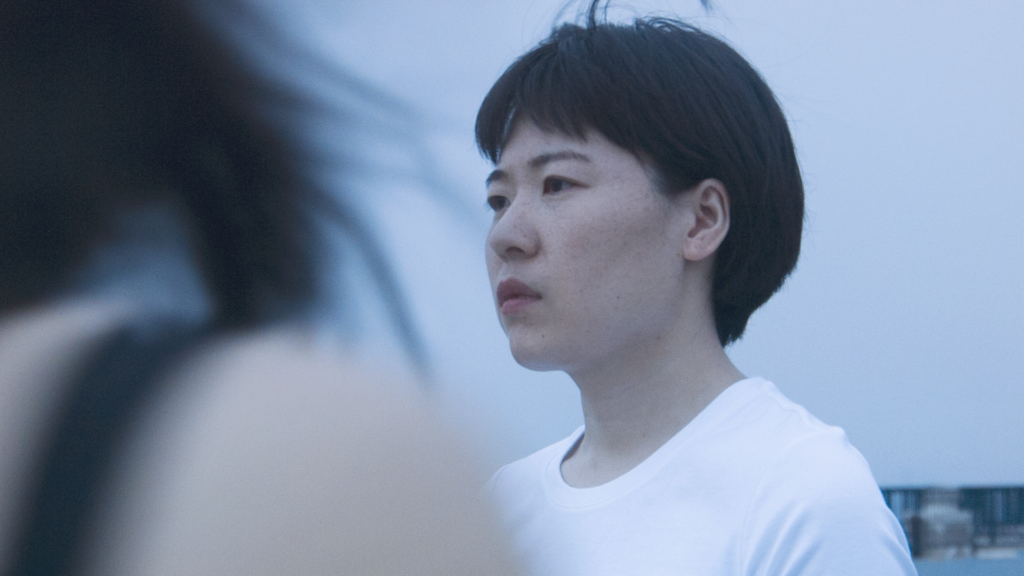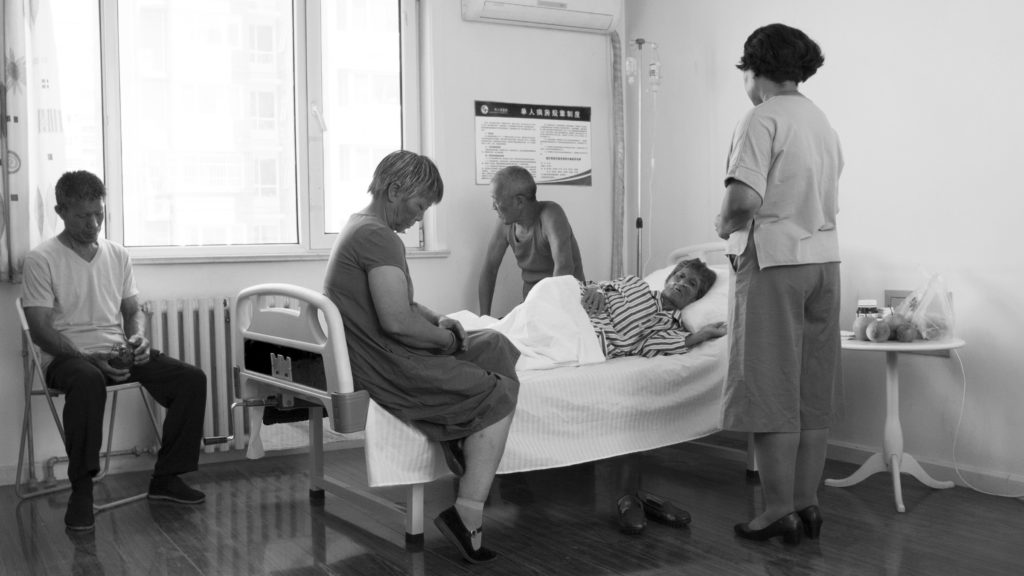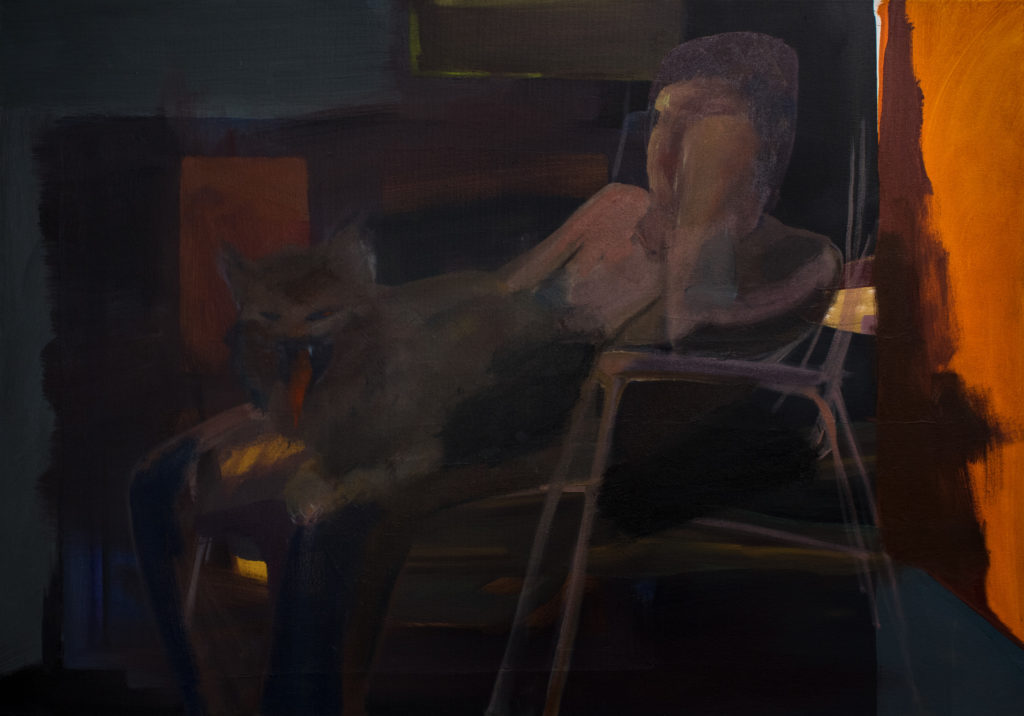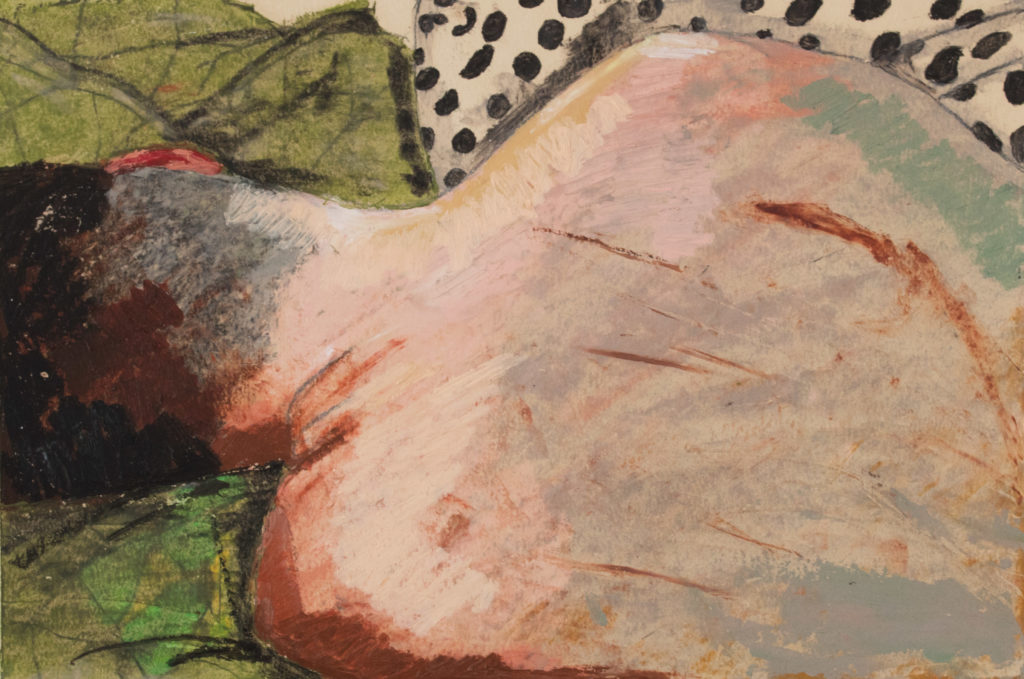Chinese Filmmaker Yafei Qi Questions the Nature of Home in Two New Berlin Exhibitions


Katie White

At the moment, 32-year-old Chinese-born artist Yafei Qi is spending her days as an artist-in-residence in a rooftop studio atop the Federal Foreign Office in Berlin. There she is painting and editing film in preparation for an exhibition that will open in June of this year; currently, she is also the subject of a solo show at Migrant Bird Space, her first in Germany.
Yafei, who moved to Berlin with her husband a little over a year ago, has gained a following particularly for her films, which quietly, and sometimes comically, explore themes of familial intimacy, industrialization, isolation, and an almost insatiable desire for escape. Her 2016 short-film, Wearing the Fog (which starred her parents) won the award for “Best Experimental Film” at the Broadway International Film Festival in Brooklyn. Recently, she sat down with artnet to discuss her two new exhibitions, her life as an artist and immigrant in Berlin, and the evolving idea of “home” in her films and paintings.

Yafei Qi, Film still from Wearing the Fog (2016). Courtesy of the artist and Migrant Bird Space.
The dynamics of family have been central to your films. Wearing the Fog , which is currently being screened at Migrant Bird Space, was filmed in your parents’ apartment. In Life Tells Lies (2017), we witness an inter-generational struggle between female family members, all played by your relatives. Can you speak to these ideas in relationship to the new work?
I’m finishing two new films and I think I’m contemplating the idea of home a bit more than the dynamics of a family in these. In one of these films, I had originally wanted to make a video about Franz Kafka’s short story “The Departure,” which I’ve been very influenced by. As my idea for this film developed, it became a melding of dialogue from the Kafka story with scenes from the American movie Revolutionary Road (2008) starring Kate Winslet and Leonardo DiCaprio, which centers on the belief that in a new place you can become a new and better person.
Personally I’ve sought out new places in a similar mindset. My husband and I moved to Berlin a year-and-a-half ago. Recently we were talking about moving to Glasgow, thinking perhaps we could be happier there. An artist I know told me that perhaps my desire to move would never be satisfied, that there is no place I would want to call home. That was a realization for me. As an immigrant, or maybe just as a person, I will always have this feeling of displacement. These are ideas I try to understand or examine more closely in my new work.

Yafei Qi, Film still from Life Tells Lies (2017). Courtesy of the artist and Migrant Bird Space.
Yes, in Wearing the Fog the focus seems to be more about domestic struggle, between parents and two children in an apartment, and a desire for escape. As you mentioned, the film is set in your parents’ apartment and they also star in the film. These are highly personal stories.
I’ve always had a strange relationship with my family and Wearing the Fog was a way of figuring out why, of dealing with it, I guess. Originally I wrote a long script about two children running from home. Then I selected some scenes and worked those into the double-screen film, in a nonlinear, experimental style.
My parents argued all the time when I was a child. I remember a time when I was maybe seven years old when my mother took me somewhere during a fight with my father; we were walking for hours. I made a promise to myself then, that when I was older I would take my brothers out of that place, that I wouldn’t have this drama in my personal life. As I became an adult, I had this desire to understand my parents’ experience, to see what was driving their relationship. The film was a way of bridging those gaps.
It’s interesting that your parents agreed to participate. It’s not particularly flattering subject matter.
My dad was excited at first. I think he thought he would be treated like a movie star, but in the actuality making a film is a tiring process where we were working 10 hours a day. The truth is I didn’t have to tell my parents what to do in the film, how to act. They understood implicitly. In some of those scenes, the fights are based on actual experiences from the past. It’s funny. I went to live with my grandmother when I was relatively young and then I went to boarding school. During those years, the Chinese economy was booming and my parents were very focused on business. My brother was living at home though, and many of these scenes are from the stories he told me.

Yafei Qi, Long Day, Long (2019). Courtesy of the artist and Migrant Bird Space.
Do you think your work has changed since you’ve moved to Berlin?
The second short film I’m working on is documentary interview, which is a change for me. It will include the voices of a few of my friends living in Berlin, none of whom is German, but who’ve each been living here for a couple of years. They won’t actually appear in the videos. I will be pairing their audio recordings paired with imagery. Making a documentary is a more open process for me. Rather than the traditional process of making a video, of sitting down, writing a script, and hiring a crew, now I’m collecting stories and I have to work through these to see what I’ve found.
Though you’re more well known for your films, you’re a devoted painter as well. I know you’re working on a series of paintings for your upcoming artist-in-residence exhibition. One of these is a portrait of a friend of yours, a young artist who recently died by suicide. Can you talk to me about your process and the ideas you’re exploring?
I work on one painting over and over again, painting and repainting. Sometimes one work takes seven or eight months. Right now, yes, as you mentioned, I’m working on a portrait of friend, but in it there are also my thoughts about society, there is a sense of isolation or disconnection from an environment. His death had a profound effect on me, but in a way of also thinking of the living. One morning, soon after, I woke up and for a few seconds I just had this moment of clarity, that maybe we all have this feeling of disconnection while we’re alive. Perhaps after we die we go some place we belong. I’m a little bit morose, but these ideas are what I find interesting.

Yafei Qi, Early Morning (2019). Courtesy of the artist and Migrant Bird Space.
What was your experience like as an artist-in-residence for Germany’s Federal Foreign Office?
Before this experience, I could never have imagined making art for a government organization. I would have been afraid of what to make. But now, I’ve changed my mind completely. I think it’s the government’s role to support young artists. It’s been a very freeing experience that’s allowed me to focus on my work so completely.
Yafei Qi: Wearing the Fog is on view at Migrant Bird Space through June 14, 2019. Her artist-in-residence exhibition at the Federal Foreign Office in Berlin will open June 27, 2019.